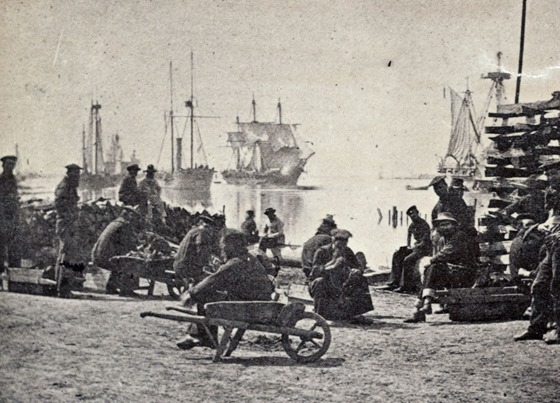March 9.—A small rebel force was this day captured six miles below Port Hudson, together with the signal book containing the signals used in the rebel army.—A large number of vagrant negroes were arrested in New-Orleans, La.
—The schooner Lightning, from Nassau, N. P., laden with dry goods, sugar and coffee, was this day captured by the United States steamer Bienville, thirty miles south of Hilton Head, S. C.
—The British iron-screw steamer Douro, of Liverpool, laden with cotton, turpentine, and tobacco, from Wilmington, N. C, was this day captured in latitude 33° 41′ N., longitude 77° 2′ W., by the United States gunboat Quaker City.
—To-day a skirmish took place near Bolivar, Tenn., between a detachment of National troops and a band of guerrillas, in which the latter were routed and eighteen of their number captured.
—James Louis Petigru died at Charleston, S. C, in the seventy-fourth year of his age. Mr. Petigru was an avowed and active opponent of the nullification movement of 1830-32, a consistent and persistent Whig through successive Democratic administrations, and a bold, open, and loyal Union man in the critical winter of 1860-61. He sacrificed popularity without losing esteem. He was for many years the leader of the South-Carolina bar, and one of the latest acts of his life was a masterly argument made by him before the rebel States District Court, against the confiscation and sequestration laws passed by the rebel Congress at Richmond. Although living amongst the most bitter and vindictive people of the rebel population, Mr. Petigru died a lover of his country, and loyal to the government of the United States.
—Colonel C. C. Dodge returned to Norfolk, Va., after making a successful reconnoissance to Southfield, Chuckatuck, and Blackwater Bridge. At the latter place he had a fight with a party of rebels, but at the expiration of twenty minutes, they hastily withdrew. In this affair, several rebel prisoners were captured with their horses and arms.
— A Detachment of National troops under the command of Colonel Chickering, left Baton Rouge, La., for the purpose of reconnoitring the surrounding country and burning the bridges on the Comite River. They destroyed Bogler, the Strickland, and the Roberts bridges over that river, dispersed a large force of rebel guerrillas, and returned to camp without losing a man.
—To-night, a second “Quaker gunboat,” or sham monitor, constructed of logs, with pork barrels for funnels, was sent adrift by the National fleet above Vicksburgh, for the purpose of drawing the fire of the rebel batteries. It showed that the rebels were always on the alert, for, although the night was very dark, ninety-four shots were fired at the mock vessel as she passed along the various batteries.









